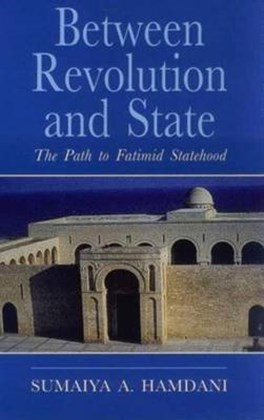Between Revolution and State The Path to Fatimid Statehood
I.B. Tauris in association with the Institute of Ismaili Studies
This book examines the most important writings of a tenth-century Islamic theologian and jurist who was one of the most original thinkers of his period. It argues that Qadi al-Nuʿman's works constituted new and vital genres in Ismaili Shiʿi literature, a development necessitated by the Fatimids’ transition from revolutionary movement to statehood, and by their desire to establish their authority as a Shiʿi alternative to the Sunni Abbasid caliphate.
Already famous in the Fatimid era, al-Nuʿman left a legacy which includes a formalised school of law, an early record of the Fatimid achievement in his historical and biographical works, new interpretations of Ismaili doctrine explored in his legal and esoteric writings and the formulation of a ceremonial language in his work on court protocol. Between Revolution and State explores all of these literary genres in depth and presents a sophisticated and readable analysis of one of the seminal figures of Islamic and Ismaili history.
Acknowledgements
List of Abbreviations
Introduction: The Fatimids and the Ismaili Shiʿi Century
1. From Revolution to State
2. From Batin to Zahir
3. The Zahiri Framework
4. Zahiri Paradigms
5. The Zahiri Order
Conclusion: Between Zahir and Batin
Notes
Bibliography
Index
Sumaiya A. Hamdani received her PhD degree in Islamic history from Princeton University specialising in the medieval Islamic and Fatimid history. She is Associate Professor in the History and Art History Department of George Mason University, Virginia.

